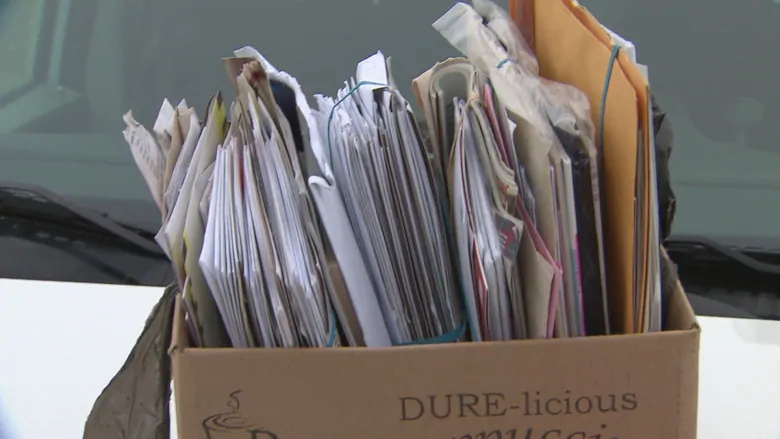We’re breaking down what you need to know about the pandemic by answering your questions. You can send us your questions via email at COVID@cbc.ca and we’ll answer as many as we can. We’ll publish a selection of answers every weekday on our website, and we’re also putting some of your questions to the experts on the air during The National and CBC News Network.

We’re breaking down what you need to know about the pandemic by answering your questions. You can send us your questions via email at COVID@cbc.ca and we’ll answer as many as we can. We’ll publish a selection of answers every weekday on our website, and we’re also putting some of your questions to the experts on the air during The National and CBC News Network.
So far, we’ve received thousands of emails. Your questions have surprised us, stumped us and got us thinking, including a number of questions about what to do with your mail — in particular this question from Claire L.:
Would putting letters in the microwave for a short time destroy the COVID-19 virus?
We’ve received a lot of questions from people who want to know whether microwaves can be used to kill the novel coronavirus. According to a recent study, the virus persists on some surfaces, including paper products such as cardboard for up to 24 hours.
But Dr. Sumon Chakrabarti, an infectious disease specialist at Trillium Health Partners, says most people are infected when the virus enters their respiratory tract — not through the skin. “Theoretically, if someone freshly sneezes on the mail, you touch it and … immediately touch your nose or mouth, then it can infect you. But this is very unlikely,” he said.
Chakrabarti recommends opening mail as you would normally, but avoid touching your face. When you’ve finished with the mail, wash your hands immediately afterward.
And while heat can kill the virus, putting paper in the microwave is a fire hazard, so don’t do that.
I have read that putting food in the refrigerator and freezer can actually preserve the virus. Can your experts comment?
Now that we’ve tackled microwaves, we’ll get to another kitchen appliance. This is a great followup question from Nancy S., who wants to know whether the virus can survive in her fridge or freezer.
We put that question to Colin Furness, an infection control epidemiologist at the University of Toronto. Unlike microwaves, freezers can preserve the virus, he said. “It’s just like thinking

